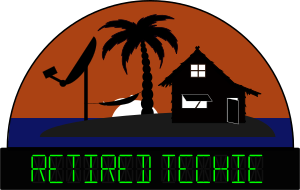Retired Techie
Getting older, not necessarily wiser!
Poems Revisited – The Last Hero
Published on October 25, 2021 at 8:19 am by LEWThe Last Hero by G. K. Chesterton (not the one by G. W. Russell) is a poem I first read at an early age, and is one of several that I always come back too. I have been contemplating why this poem engender a desire to read it over and over again. While others I can read once and then never again.
I have always liked the many works of Gilbert Keith Chesterton. Especially his political satire. Even though he wrote in the later part of the nineteenth century into the early part of the twentieth century, you would think some if his books quite appropriate in the modern day. However, I can see how some of his critiques on social mores would not sit well with many people today. Some of my favorites are Whats Wrong with the World, The Everlasting Man, and Heretics.
I find most of G. K. Chesterton poems to be easily readable. Unlike some of his non fictional works, many of his poems are more straight forward. The Last Hero tells the story of a warrior coming to his last days. Though the circumstances in the poem would not brand him a hero by many.
From a technical standpoint The Last hero is presented in four ten line stanzas with a two line rhyming scheme. While all lines are of similar length, there is no standard poetic meter between lines. There are several poetic techniques used throughout including alliteration, enjambment, and caesura.
The opening stanza places the subject on what is most likely a battle field in Bergen (possibly Germany?) on a dark and rainy day. The subject also talks of lonely love, and loving the rain more than the sun. To me this is an initial hint that our subject is more an anti-hero than a hero.
In the next stanza we find the probable case of the battle. It seems our subject stole his bride from her kinsman, and they in turn stole her back. While our subject may love the bride, it is apparent the bride does not return the feeling. The second stanza has a similar ending to the first stanza. Our subject professes loving a woman’s frown more than others love a woman’s smile.
The third stanza paints a picture of the upcoming battle, which our subject does not think he will survive. The last line is similar again to the endings of the firs two stanzas, where our subject professes love for his foes that is greater than others love for their friends.
In the final stanza the subject expresses through the use of rhetoric what the end of his life will mean in something of an elegy. The final stanza also ends in similar fashion the proceeding with the subject laughing in death more than other laugh in life.
I find the subject matter easy to follow, the literary devices help with the form and flow. Most of the arcane references are understood to some extent by how they are used. The poem not overly long, reads well, and the story flows evenly. It is a pleasure to read again and again.

Add New Comment